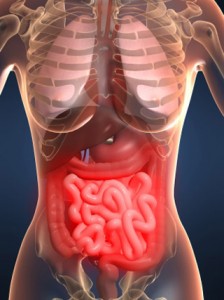 Colon cleansing is an effective way of ridding the body of toxins and waste products that can accumulate in the colon.
Colon cleansing is an effective way of ridding the body of toxins and waste products that can accumulate in the colon.
In this article we are going to discuss the difference between short-term harsh colon cleansing, and more natural methods. We will explore the reasons behind why more gentle methods are preferable to using harsh herbs or laxatives.
‘Quick-Fix’ Colon Cleansing
There are a few different chemicals that can be used to perform a colon cleanse. As this article is focused on the benefits of natural cleansing, we will not explore the different types in-depth.
Quiz: Is Your Body TOXIC? Take the Test...
(get your free personalized report)
There can be side effects associated with any method of colon cleansing, such as:
- Diarrhea;
- Constipation;
- Bloating;
- Nausea; and
- Cramping.
Having said this, the side effects are reportedly more pronounced when using harsh chemicals. These chemicals can strip your body of vital nutrients and electrolytes, interfering with its ability to hydrate itself adequately.
One item commonly associated with colon cleansing is Senna; and again, this is not ideal because it is a laxative that can interfere with your body’s ability to absorb nutrients from food. It is not uncommon for people to become dependent on Senna products, which can result in long-term colon dysfunction, dehydration, and even severe illness.
Natural Cleansing
(If you haven’t already, take a look at our “time to cleanse?” quiz at http://www.timetocleanse.com/have-you-taken-the-quiz-is-it-time-to-cleanse/)
The first thing to consider when it comes to improving your colon health is what you are already putting into your body. It is likely that you will benefit from eliminating certain food items throughout the duration of your colon cleanse, such as:
Quiz: Is Your Body TOXIC? Take the Test...
(personalized report)
- Red meat;
- Refined, low-fiber foods;
- Excessive amounts of caffeine;
- Dairy products;
- Wheat and products containing gluten;
- Refined oils; and
- Hydrogenated fats and oils.
Some of these items are not necessarily bad, but they can place unnecessary strain on your colon which may potentially hinder your cleansing efforts. Instead, opt for food items such as:
- Proteins from pastured animals;
- Leafy greens and fibrous vegetables;
- Ground flax seed; and
- A balance of healthy fats.
These items will provide you with a mixture of soluble and insoluble fibers, which help to remove bacteria and other toxins from the body.
It is also essential that you remain adequately hydrated, because your body needs fluids to flush away toxins and waste products. Soluble fibre also dissolves in water, so you can boost its beneficial effects by drinking plenty of fluids.
There are many recommendations when it comes to adequate water intake, and it is dependent upon various factors such as your activity level, sodium intake, and fiber intake. Keep the following in mind: thirst is a lagging indicator, so if you feel thirsty, it is likely you are already dehydrated.
Final Thoughts
It is quite clear that there is no need to go to such extreme measures as flushing the body out with harsh chemicals. Eliminating potentially troublesome foods while including more of the foods that will help your body cleanse itself will, more often than not, achieve the results you are looking for.
By improving your nutrition and hydrating yourself, your stools will become more regular which means that your body will become more effective at ridding itself of harmful toxins. This will have a knock-on effect, that will have great implications for other aspects of your health and well-being.
Successfully cleansing your colon, and your body as a whole, will result in increased energy levels, improved mood, better satiety from food, less bloating, and an overall greater quality of life.
